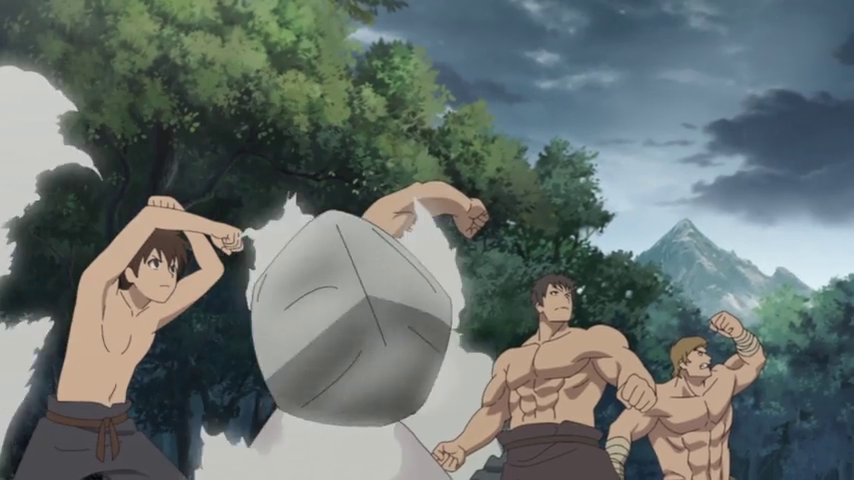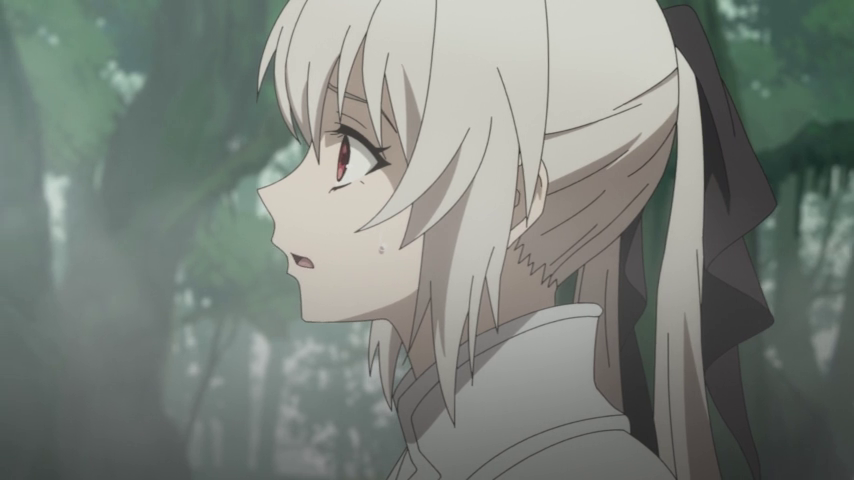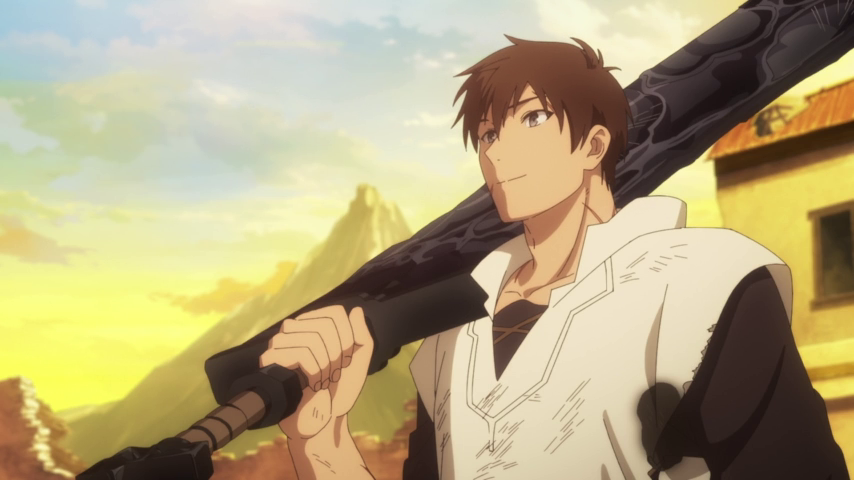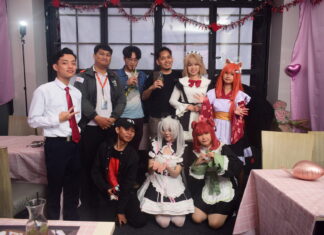The summer 2024 anime season was particularly unique for me, showcasing two series with the same overarching theme but featuring protagonists who are opposites. On the one hand, we have The Ossan Newbie Adventurer, Trained to Death by the Most Powerful Party, Became Invincible, and on the other, I Parry Everything. Both anime feature overpowered protagonists who gained their strength through rigorous training, yet they differ significantly in their level of awareness and perceptiveness.
In Ossan Newbie Adventurer, the main character, Rick, undergoes intense training. In the first episode, he is unaware that his training has made him incredibly powerful, far beyond the level of a novice adventurer. He only realizes this after observing his opponents’ abilities, which boosts his confidence. Rick is enthusiastic about using his knowledge and training experiences to help others improve their strength.
Conversely, I Parry Everything features Noor, who also trains himself, although not as intensely as Rick. Noor has practised the same skill repeatedly from childhood to early adulthood, resulting in an overpowered basic skill compared to a regular one. However, he remains oblivious to his skill’s true power even after facing numerous challenges. Each time he overcomes an obstacle, he believes his enemies are of a standard level and that he still struggles, leading him to think he needs more training. Noor is so dense that he always considers himself to be of a lower level than any regular adventurer.

To be fair, Rick has seen what regular adventurers can do and the types of enemies they encounter. Noor, on the other hand, is a countryman aspiring to be an adventurer but lacks the knowledge and experience typical of an official guild member. Consequently, Noor has never faced “real” enemies, and every new foe he encounters is perceived as low-level since the guild would not assign high-level challenges to someone who isn’t officially recognized.
With their character differences, Rick and Noor approach new challenges differently. Rick often feels terrified and uncertain if he can resolve a situation, usually requiring encouragement from friends. In contrast, Noor is not afraid of challenges; he is simply surprised by the unexpected or perceives his encounters as normal situations in the adventurer world. His lack of fear can sometimes inspire others, showing them that if Noor isn’t afraid, they shouldn’t be either.
Let’s delve into why Noor is this way (besides being somewhat oblivious and overly humble).
As the Adventurer Guild has not officially recognized Noor, he views himself as an unofficial adventurer, unable to take on any official guild quests or missions. Despite his achievements, such as defeating “goblins” and “frogs”, Noor still considers himself a novice.
This self-perception limits Noor’s full potential, as he does not fully understand his capabilities. This concept relates to Bandura’s theory of self-efficacy, which posits that an individual’s belief in their abilities determines their success in various situations. Consequently, Noor believes himself to be incapable and weak due to the lack of recognition from higher authorities, hence experiencing a lack of self-efficacy.
According to Bandura’s theory, four factors can influence self-belief: outcome, vicarious experiences, social persuasion, and physiological feedback.
After his parents passed away, Noor aspired to become a great adventurer. Unfortunately, his childhood was challenging, requiring rigorous training just to acquire basic skills. Despite his efforts, Noor only managed to learn simple skills, leading to constant feedback that he lacked potential and was not fit to be an adventurer. This negative reinforcement exacerbated his self-perception as a novice, unworthy of being a top-tier adventurer.
Believing that his primary issue was the inability to learn advanced skills, Noor relentlessly trained to improve his basic abilities, such as Parry, Tiny Flame, and Low Heal. Although his training significantly enhanced these skills, he did not consider them sufficient to become a true adventurer. This was partly due to his lack of exposure to similar “basic” skills, making it difficult to compare and appreciate his progress.
Despite his achievements, Noor continues to see himself as incapable, attributing his success to luck or weak enemies, especially since he is often accompanied by high-ranking adventurers. He fails to recognize his contributions to the city’s safety, perceiving his experiences as routine and unworthy of boosting his confidence. Even though adventurers like Lynn acknowledge his strength, Noor’s actions are viewed as mundane and unremarkable by his standards.
The consequence of not achieving Self-Efficacy is that individuals often give up quickly due to a lack of confidence. In some cases, they might feel depressed and afraid to commit to the task or situation they are facing.
In Episode 4, we see Lynn, a senior adventurer, suddenly lose confidence. Despite her experience, she is intimidated by the prospect of fighting a King Goblin, which is rumoured to require numerous high-level adventurers. Even with her extensive experience, the heightened challenge renders her unable to act.

However, Noor’s judgment that the King Goblin is just a “regular goblin”, owing to his lack of self-efficacy (in a positive way), simplifies the situation for her. This mindset is beneficial as it encourages tackling problems without overthinking, even if one cannot fully overcome them. Sometimes, facing challenges straightforwardly can lead to greater benefits. With just one sentence, “It’s just a Goblin”, Noor empowers Lynn, who regains her composure and can face the challenge head-on.
In such situations, when we lack self-efficacy, simplifying the problem can be more effective than overcomplicating it. Even if we know we might not overcome it due to a lack of prior experience or external pressures, understanding the core of the problem can help us realize that we have encountered similar situations before.
For me, this resonates perfectly with my experience in starting a career in project management. Without professional experience as a project assistant or manager, showcasing my ability to lead a project seemed daunting. However, I realized that the situation was similar to leading my high school or college club, which made me feel more empowered despite my lack of professional experience. Over time, I overcame the challenges and led projects more effectively.
Simplifying situations and adding a positive outlook can boost our confidence and ability to complete tasks within our capacity. However, this approach should not be applied to every situation, particularly during critical moments, where thorough analysis is essential. In fear-inducing situations, it is better to focus on the core of the problem rather than overanalysing it.
References
- Chatterjee, D. (2024). Imposter Syndrome and Its Relationship with Self-Efficacy and Achievement of Success.
- Jones, B. (2013). Self-Efficacy Theory v1 [Video]. YouTube. https://www.youtube.com/watch?v=pWV7qXxlYwk
- Lopez-Garrido, G. (2023). Self-efficacy. Retrieved 1 November 2024 via Simply Psychology. https://www.simplypsychology.org/self-efficacy.html
The Indonesian Anime Times | Written by Cakra Bhirawa | This opinion represents the author’s personal views, who is not a psychology graduate, and does not reflect the views and editorial policy of The Indonesian Times or KAORI Nusantara.



